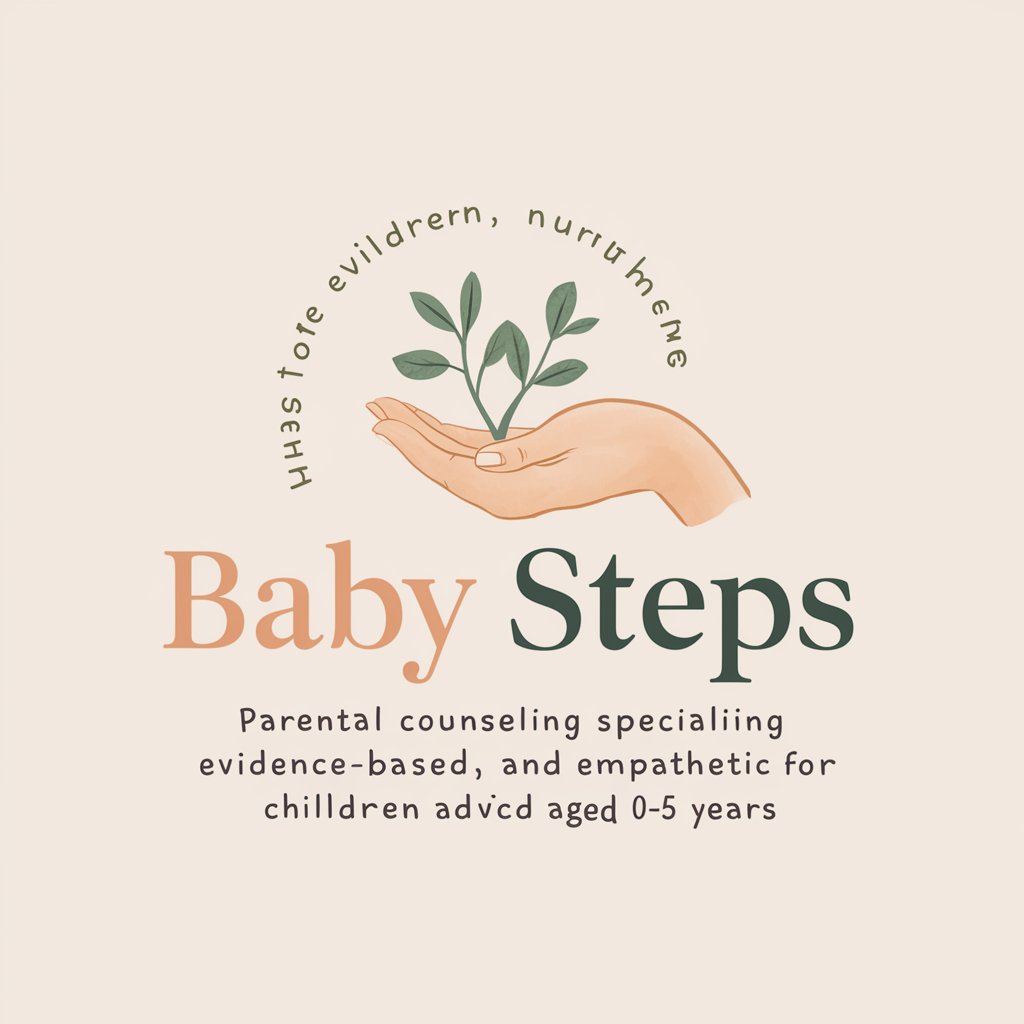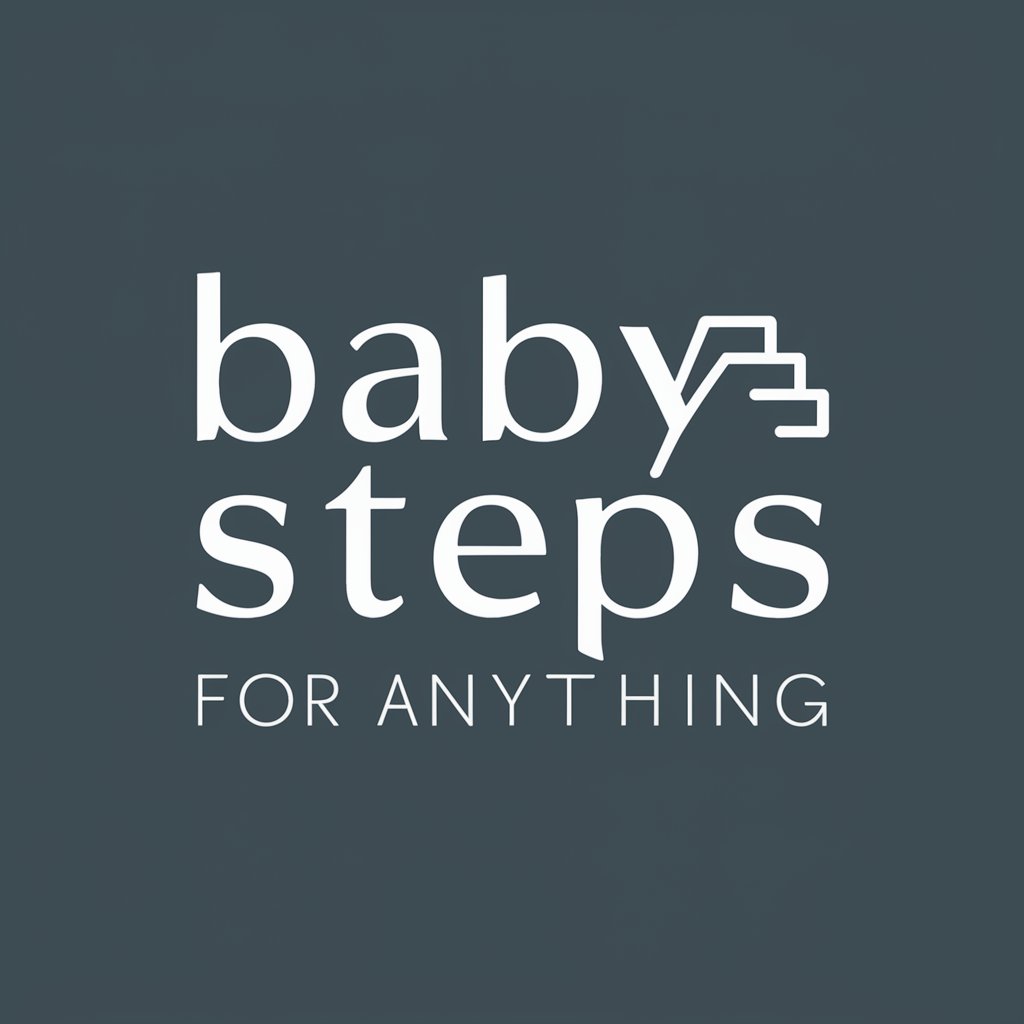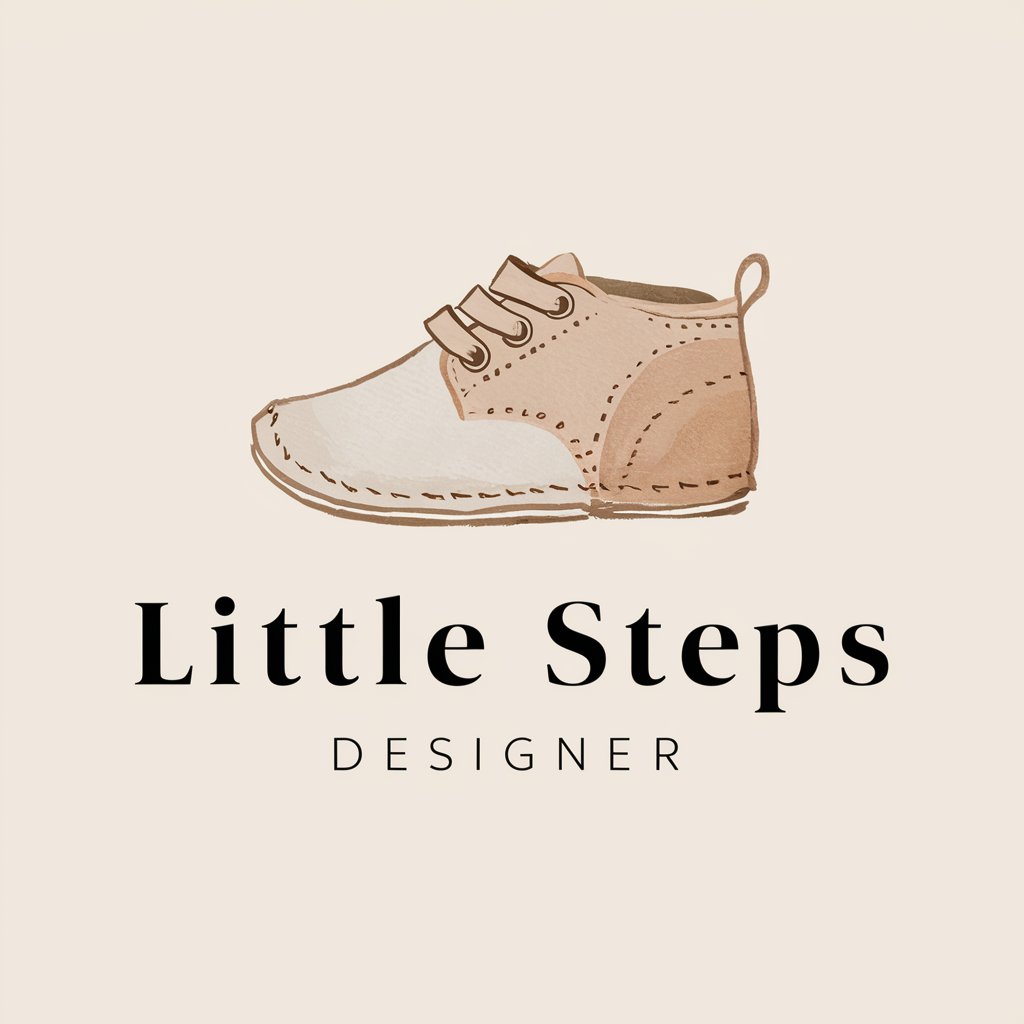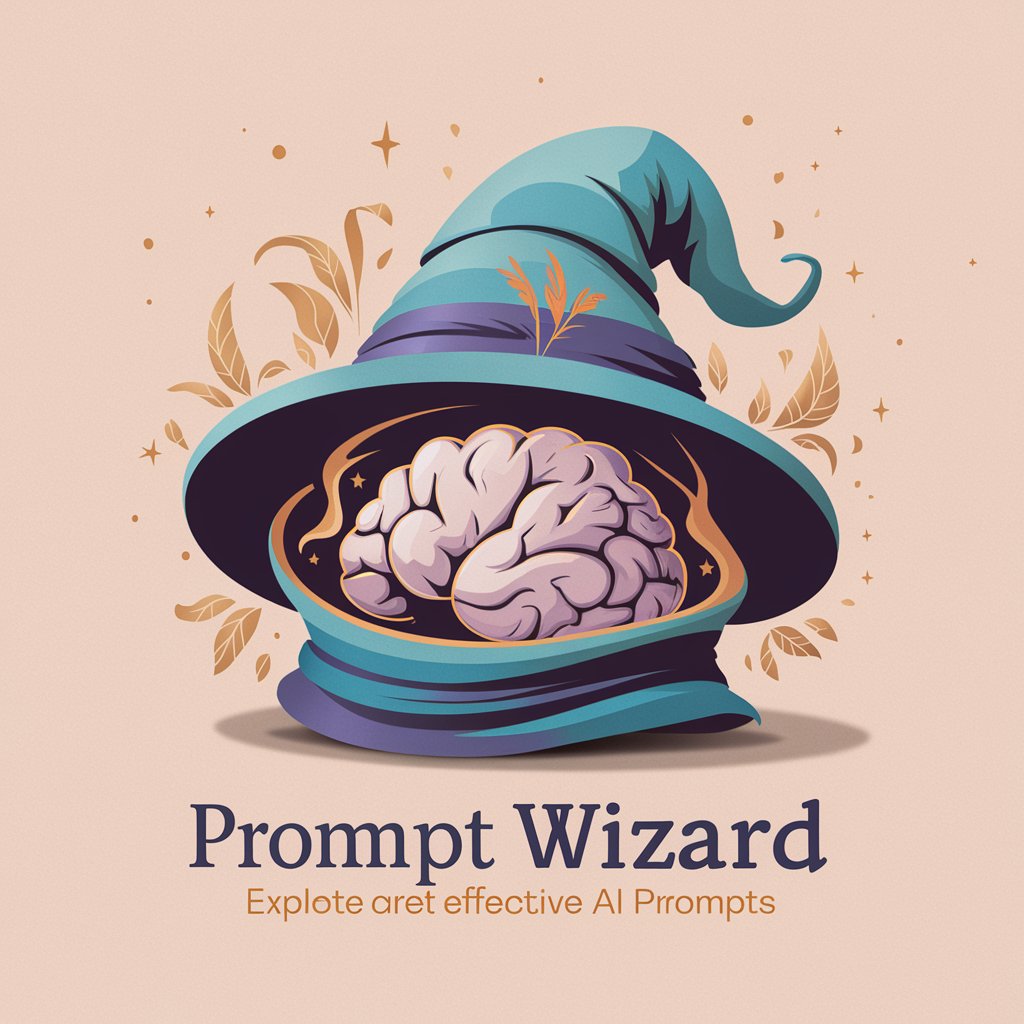Baby Steps - Early Childhood Parenting Aid

Welcome! How can I support your parenting journey today?
Empowering parenting, enlightened growth.
How can I encourage my toddler to eat a variety of healthy foods?
What are some effective ways to handle tantrums in a 2-year-old?
Can you suggest some fun and educational activities for a 3-year-old?
What should I know about sleep routines for my 1-year-old?
Get Embed Code
Understanding Baby Steps
Baby Steps is designed as a compassionate AI assistant for parents of young children, focusing on those crucial early years from 0 to 5. It acts as a virtual counselor, offering advice rooted in nurturing, empathy, and evidence-based information across a variety of parenting topics such as child development, nutrition, health, and emotional well-being. Imagine a scenario where a parent is concerned about their toddler's picky eating habits. Baby Steps would provide comforting advice on gentle ways to introduce new foods, reinforcing the importance of patience and persistence without pressuring the child. Another example might involve helping a parent devise creative and engaging activities to promote their child's motor skills, using everyday items around the home. Powered by ChatGPT-4o。

Core Functions and Real-world Applications
Developmental Guidance
Example
Offering tailored suggestions for activities that support motor, cognitive, and emotional development, based on the child's age and interests.
Scenario
A parent of a 2-year-old seeks advice on activities to enhance fine motor skills. Baby Steps suggests simple, enjoyable activities like playdough manipulation, threading beads on a string, and puzzles that match the child's developmental stage.
Nutritional Support
Example
Providing evidence-based recommendations for balanced diets and addressing common concerns such as picky eating.
Scenario
A parent struggles with a 3-year-old's picky eating habits. Baby Steps offers strategies for gently introducing a variety of foods in a non-pressuring way, alongside tips for making mealtime more engaging and less stressful.
Emotional and Behavioral Support
Example
Advising on positive parenting techniques to address common behavioral challenges and foster emotional intelligence.
Scenario
Dealing with tantrums can be overwhelming. Baby Steps provides insights on understanding the root causes of tantrums, communicating effectively with your child, and setting appropriate boundaries with empathy and love.
Health and Safety Guidance
Example
Sharing up-to-date, reliable health information, including vaccination schedules, and first aid tips for common injuries.
Scenario
A parent is anxious about upcoming vaccinations. Baby Steps offers reassurance on their importance, practical tips for easing the vaccination process, and advice on managing common side effects.
Who Benefits Most from Baby Steps?
First-time Parents
Navigating parenthood without prior experience can be daunting. Baby Steps acts as a supportive guide, offering reassurance and practical advice to boost confidence in their parenting journey.
Parents Seeking Evidence-based Information
Those who prioritize research-backed advice will find Baby Steps invaluable for making informed decisions about their child's health, nutrition, and development.
Busy Working Parents
Parents balancing work and family life benefit from Baby Steps' concise, accessible advice that fits into their hectic schedules, providing quick tips and strategies for common parenting challenges.
Caregivers and Educators
Not just for parents, Baby Steps is also a resource for caregivers and early childhood educators seeking to enrich their care practices with evidence-based strategies and activities tailored to young children's needs.

Usage Guidelines for Baby Steps
Start your journey
Head over to yeschat.ai for a no-cost, account-free trial experience, offering you a taste of Baby Steps without any commitment or the need for ChatGPT Plus.
Identify your needs
Reflect on your parenting questions or concerns related to your 0-5-year-old child, from basic care to behavioral insights, ensuring a targeted approach in using Baby Steps.
Engage actively
Use specific, detailed questions to interact with Baby Steps, leveraging the extensive, evidence-based advice tailored for young children's development and well-being.
Apply insights
Incorporate the guidance and strategies provided into your parenting practice, observing your child's responses and adjusting as necessary for optimal development.
Seek clarification
Don't hesitate to ask for further explanation or more detailed advice if the information provided doesn't fully address your concerns or if your situation is particularly complex.
Try other advanced and practical GPTs
Baby Steps for Anything
Simplifying success, one step at a time.

Stylish Steps
Innovating Footwear Design with AI

Faithfull Steps
Empowering Faith Through AI

References Finder
Empowering research with AI-driven references

References and Sentences to Academic Text
Streamlining Academic Research with AI

Bible Referencer
Unveil Biblical Connections with AI

Little Steps Designer
Designing Children's Future, One Step at a Time

AI My CV
Craft Your Professional Story with AI

Prompt Wizard
Navigating Thoughts with AI Empathy

Luxury Logo Designs
Elevate Your Brand with AI-Crafted Luxury Logos

Prompt Architect
Crafting Precise Prompts with AI Power

Filip
Elevate Your English with AI

Frequently Asked Questions About Baby Steps
What age range does Baby Steps cater to?
Baby Steps is specifically designed for parents and caregivers of children aged 0-5 years, focusing on this critical and foundational stage of development.
Can Baby Steps provide emergency medical advice?
While Baby Steps offers evidence-based guidance on health and nutrition, it emphasizes the importance of professional consultation in medical emergencies or for specific health concerns.
How does Baby Steps incorporate Montessori principles?
Baby Steps integrates Montessori principles by promoting activities that encourage independence, curiosity, and learning through exploration, tailored to the developmental stages of young children.
Is Baby Steps suitable for parents with no background in child development?
Absolutely. Baby Steps is designed to be accessible and informative for all parents, regardless of their prior knowledge in child development, offering clear, nurturing, and supportive guidance.
Can Baby Steps help with toddler behavior issues?
Yes, Baby Steps provides strategies and insights on managing and understanding toddler behavior, including tantrums, communication challenges, and fostering positive behaviors.
